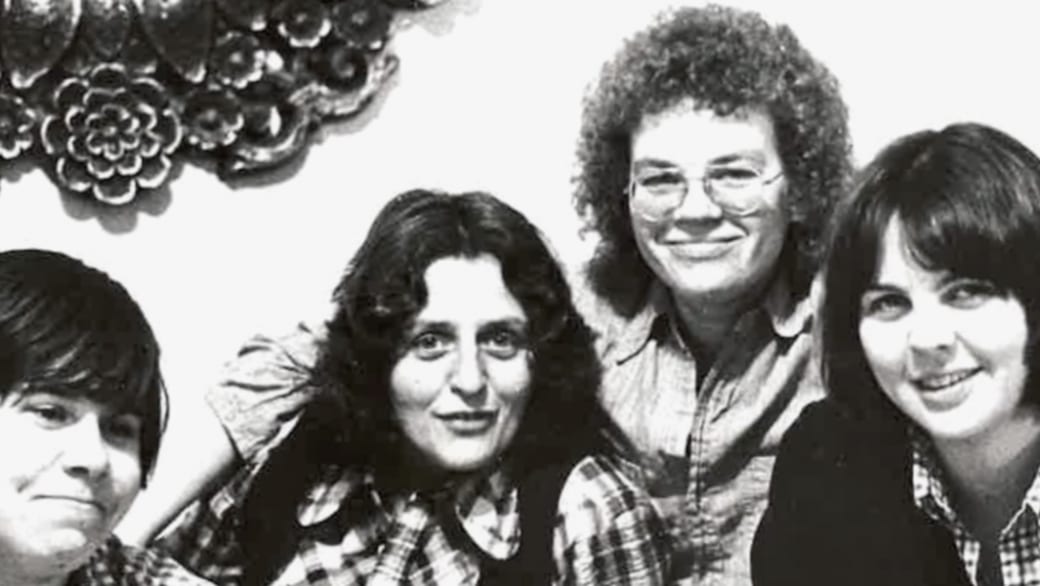The Brunswick House is many things: a sweaty nightclub, a heritage building, a factory for noise complaints.
It’s also the site of one of the most iconic moments of queer resistance in Toronto’s history. It was 42 years ago this month that the Brunswick Four, as they came to be known, were harassed, assaulted, arrested and charged for the crime of singing a song.
While many of us have fantasized about jailing an open mic singer after a particularly lacklustre performance, these four women were accused of instigating a “lesbian riot” because they had the gall to go on stage and sing “I Enjoy Being a Dyke.”
During their arrest and detention, Pat Murphy, Adrienne Potts, Heather Elizabeth Byer and Sue Wells were subjected to homophobic abuse by the police officers. One was punched in the back of her head while in custody. A cop threw a bag of white powder at them and threatened to string them up on false charges.
Eventually three of the women were charged with a variety of crimes, and Potts was convicted of causing a disturbance.
But the arrest and trial of these women was a pivotal moment for Toronto’s queer community. Coming six years before Operation Soap and the uprising that followed, the resistance demonstrated in 1974, especially by lesbians, presaged future battles and proved to be a groundbreaking moment unto itself.
A legal defence fund was started for the women and Judy LaMarsh, a former Liberal cabinet minister, represented them pro bono.
“The courtroom was packed every day with women,” recalled Murphy in a 1986 interview. “There wasn’t a day they weren’t there to support. Every single day.”
The city washed its hands of the incident. In 1976, the Royal Commission into Metropolitan Police Practices sided entirely with the police, only acknowledging that officers may have used some harsh language with the women.
Now with the Brunswick House looking like it’s slated to become a Boston Pizza, it’s time for the city to look at keeping the memory of this resistance alive.
Toronto is short on memorials to its queer history. The AIDS Memorial in Barbara Hall Park, the Alexander Wood statue on Church Street and a plaque commemorating the creation of the University of Toronto Homophile Association are the only permanent reminders that queer Torontonians have lived and fought in this city.
Others are desperately needed. There’s nothing remembering the 1981 bathhouse uprising, nor is there yet, despite years of effort, a permanent memorial to the victims of transphobia.
A commemoration for the Brunswick Four would be a good start.
These were extraordinary women whose contribution to Toronto’s history has been immense. Their refusal to be bullied one cold January night crystallized the aspirations of not one movement, but many.
They’ve already earned their place in Toronto’s history. It’s just up to us to catch up.

 Why you can trust Xtra
Why you can trust Xtra


